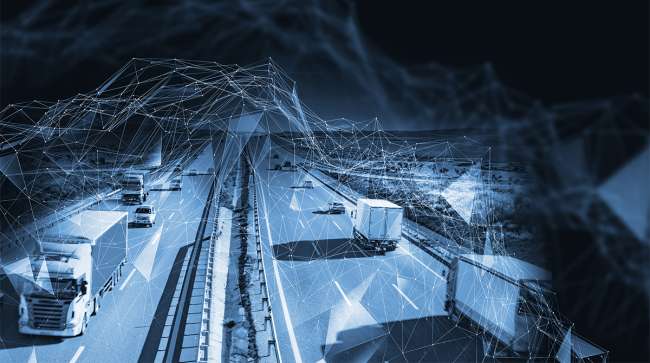Senior Reporter
Senators Promote AI Education

[Stay on top of transportation news: Get TTNews in your inbox.]
Senior senators on the freight transportation committee are promoting artificial intelligence education to improve supply chain industries’ adoption of the technology.
The Commerce Committee’s leadership recently unveiled legislation specific to amplifying an understanding of AI at a moment when stakeholders are incorporating its technologies.
“The emerging tech jobs of tomorrow are here today,” committee Chairwoman Maria Cantwell (D-Wash.) said May 23. “Seattle has one of the nation’s highest growth rates for AI jobs. AgAID in Pullman is helping our farmers feed the world with AI solutions that overcome crop productivity challenges, and the entire Pacific Northwest is on the way to becoming America’s ‘Quantum Valley.’ Demand for AI expertise is already high and will continue to grow.”
“This bill,” the chairwoman continued, “will open doors to AI for students at all levels and upskill our workforce to drive American tech innovation, entrepreneurship and progress in solving the toughest global challenges.” Cantwell is the lead sponsor of the National Science Foundation AI Education Act.
This week, @SenatorCantwell & @JerryMoran introduced the NSF AI Education Act to boost AI & quantum education, from scholarships for university students to supporting community colleges & tech resources for classrooms.
Read more and hear from supporters: https://t.co/ztgcSstvyw pic.twitter.com/bn0OehrZdV — Senate Commerce, Science, Transportation Committee (@commercedems) May 24, 2024
Sen. Jerry Moran (R-Kan.), also on the committee, is a co-lead sponsor. “If we want to fully understand AI and remain globally competitive, we must invest in the future workforce today,” he said.
“This legislation takes an all-of-the-above approach, investing in [science, technology, engineering and mathematics] education, fellowships and hands-on learning from kindergarten to college for students in rural areas, at community colleges and from low-income homes. Inspiration to explore and the resources to learn will help make certain the U.S. is an AI leader in the next century,” Moran added.
Specifically, the bill would expand access to funding and fellowships for professional development opportunities in the STEM workforce. It also would approve grants for research, development and training in the agriculture sector. According to the senators, the measure would aim to facilitate training for at least 1 million individuals in “areas related to the creation, deployment or use of AI by 2028, the creation of AI education and training frameworks that do not displace existing workers, including teachers, and the promotion of increasing the number of women who receive AI education and training, and how to ensure rural areas of the United States are able to benefit from artificial intelligence education and training.”
Stakeholders applauded the bill’s objectives. Daniel Castro, vice president of the Information Technology and Innovation Foundation, in a statement accompanying the bill’s introduction, called it an “important step forward in strengthening the STEM talent pipeline and empowering the next generation of AI pioneers to keep the United States at the frontiers of this technology.”
Transportation policymakers on Capitol Hill intend to advance AI-centric policy in upcoming legislation related to highway and freight systems. Lawmakers intend to outline recommendations for legislating on AI technologies. The transportation panel, for instance, began examining AI tools as it readies an update of a comprehensive surface transportation measure.
Want more news? Listen to today's daily briefing above or go here for more info
“Things we used to think were impossible are regularly happening before our very eyes. [Artificial intelligence] is currently being deployed across the transportation industry to help improve traffic management strategies and supply chain efficiencies, expedite infrastructure project delivery timelines, promote safer roadways and support the workforce. But this is just the beginning,” transportation committee Chairman Sam Graves (R-Mo.) said in April.
House leaders established a bipartisan task force on AI to identify a path forward for adopting its applications. Speaker Mike Johnson (R-La.) expects the task force to detail guidelines and instructions specific to AI. “Because advancements in artificial intelligence have the potential to rapidly transform our economy and our society,” the speaker said in February, “it is important for Congress to work in a bipartisan manner to understand and plan for both the promises and the complexities of this transformative technology.”




